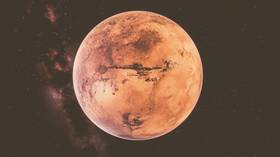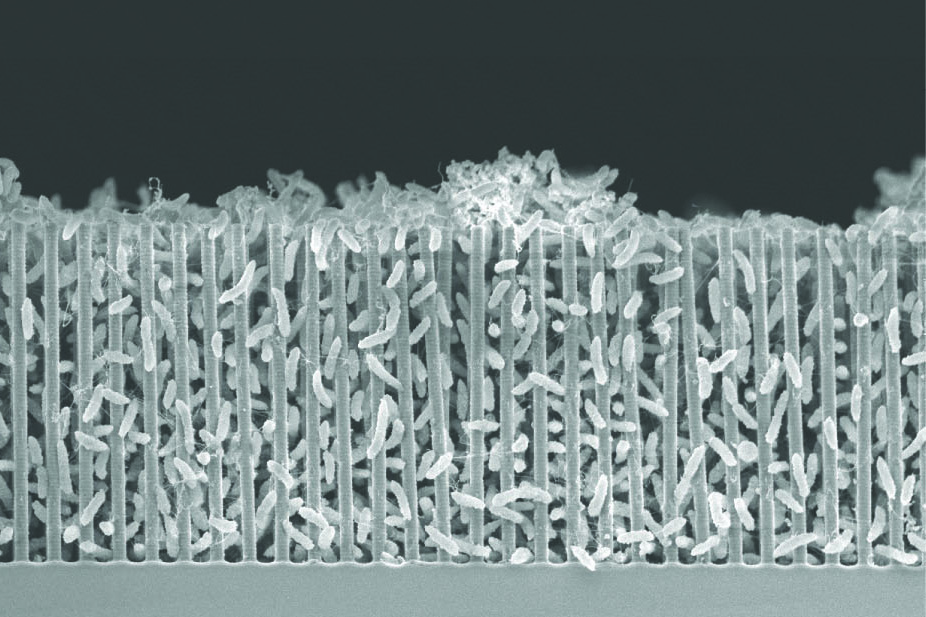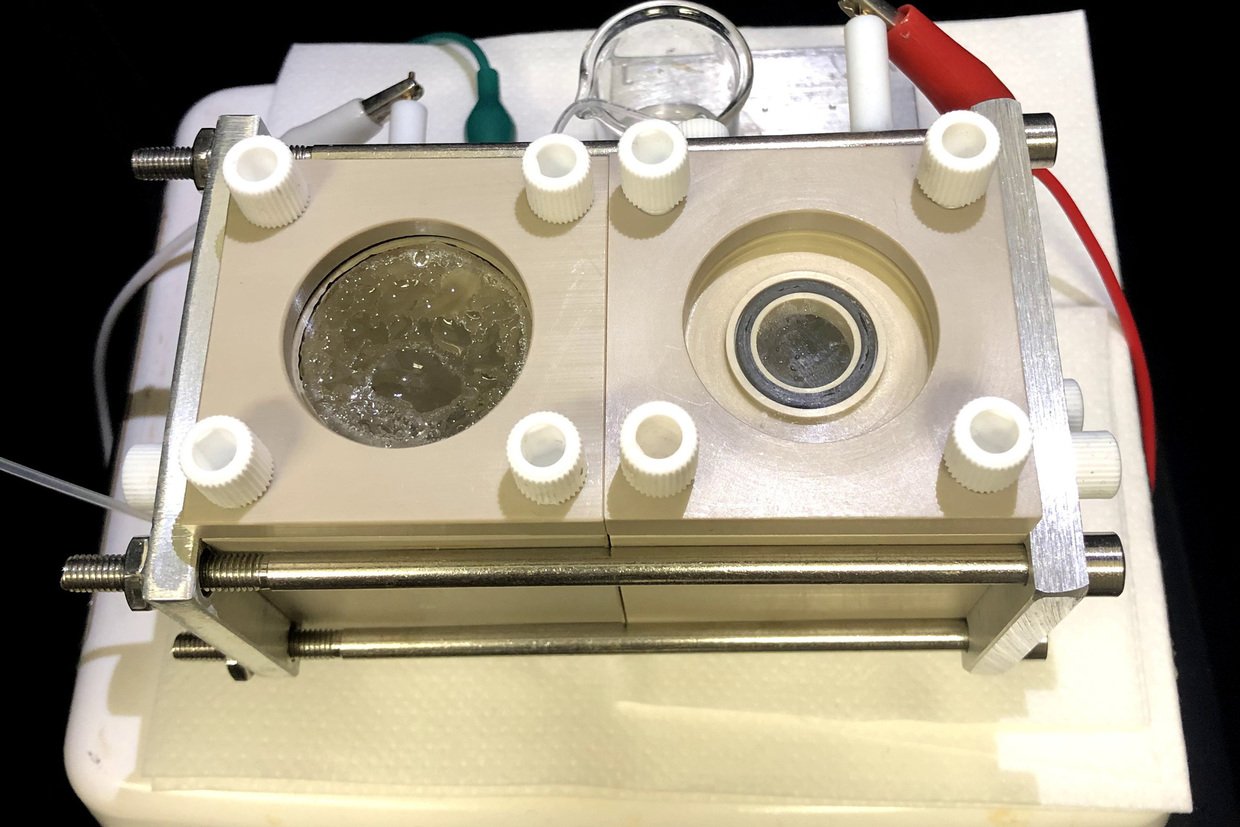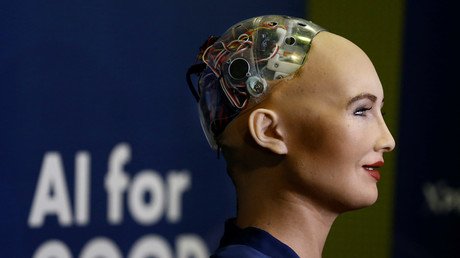Scientists develop hybrid reactor which can produce AIR and FOOD for future Mars colonies (PHOTOS)

Scientists at UC Berkeley have developed a hybrid reactor which uses 'cyborg bacteria' embedded in a forest of nanowires to produce food, fuel and oxygen for future Mars colonists.
The reactor essentially operates along the same lines as photosynthesis, in which plants use sunlight to transform carbon dioxide into sugars for food. The hybrid reactor employs Sporomusa ovata bacteria densely packed between a "forest of nanowires" to convert the CO2 into the building blocks for organic compounds.

“These silicon nanowires are essentially like an antenna,” says project leader Peidong Yang. “They capture the solar photon just like a solar panel. Within these silicon nanowires, they will generate electrons and feed them to these bacteria. Then the bacteria absorb CO2, do the chemistry and spit out acetate.”

A major concern for any future colonization mission will be the spacecraft’s payload. By using self-replicating biological systems like those described in the hybrid reactor, the University of California researchers believe they could dramatically cut weight, and thus costs.
In addition, the system would also tackle two other major challenges facing any future human colonies: how to produce things like fuel and medicine in situ and how to maintain an oxygen-rich artificial atmosphere.
Also on rt.com Life on Mars: Organic molecules discovered by Red Planet rover offer major hintThe acetate molecules produced by the ‘cyborg bacteria’ are embedded with quantum dots that also act as solar panels, and would be funneled to the manufacturing setup to produce fuel, plastics and even medicines, while the oxygen produced would be used to provide a breathable atmosphere for future colonists.
When the team unveiled the reactor five years ago, it had a solar conversion efficiency of roughly 0.4 percent, on par with most plant life here on Earth. The current prototype requires an external solar panel for an energy boost, but it can achieve a record 3.6 percent efficiency.
The researchers are now experimenting with genetically engineered bacteria which could improve the system even further and allow it to produce even more organic compounds, like sugars and carbohydrates, which could one day provide future Mars colonists with food.
Like this story? Share it with a friend!













